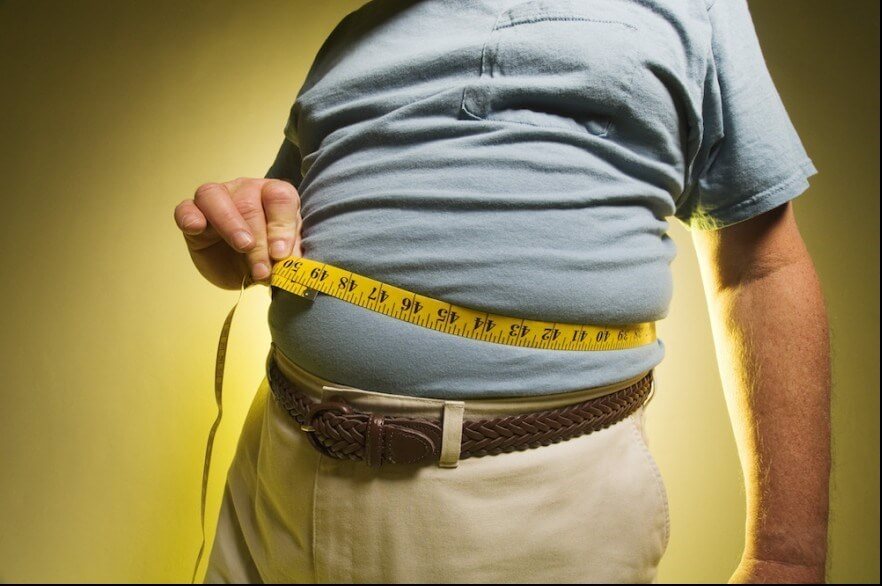According to the World Health Organization, more than 38% of the adult population is overweight; furthermore, the figure increases by at least two percentage points each year. (10) Of these, one in five adolescents is overweight, and 8% are obese.
Excess weight is not just an aesthetic problem. The presence of internal fat deposits affects metabolism and poses serious health risks.
Ultimately, excess weight and obesity lead to obstruction of the cardiovascular system and a hormonal imbalance in the body.
Read on to know the damages and consequences of excess weight – How do you do when you are in the risk zone?
Read more:
How do you determine excess weight?
Excess weight can be calculated using BMI or body mass index formula. This makes it possible to determine whether a person is overweight or obese based on height.
In the case of adults, the WHO defines overweight and obesity as:
- overweight: BMI equal to or greater than 25.
- obesity: BMI similar to or greater than 30.
Although the body mass index is used to determine the excess weight, it should not be the only factor to consider.
To have more exact values and more minor consequences on health, the correct thing to do is determine the percentage of body fat.
// Read more:
- BMI – formula body mass index
- Ideal Weight – Formula and Tables
- How to calculate the ideal fat percentage
Consequences and damages of being overweight in the body
The direct damages and consequences of excess weight in the body are an increased risk of developing cardiovascular diseases, type 2 diabetes mellitus, musculoskeletal injuries (for example, osteoarthritis), and several hormonal problems.
Being overweight negatively affects testosterone levels in men, reducing libido and potency. Among other things, obesity can lower sperm count and motility, as well as affect ejaculation volume. (2)
Excess weight damage to the body is based on the additional load on the skeleton and the spine and the progressive hormonal imbalance.
In addition, the presence of internal or visceral fat is associated with an increased risk of developing hypertension, cardiovascular disease, and varicose veins.
// Read more :
- Visceral Fat: What is Internal Fat?
- Types of body fat
- Causes of excess fat – diet, genetics, or sedentary lifestyle?
How to lose weight?
First of all, it should be considered that excess weight usually has a psychological origin. For example, high levels of the stress hormone cortisol lead to overeating and cravings for sweets. In this case, it is essential to learn to manage stress first and then cut back on sugar.
To get rid of excess body weight, the best strategy is to control and improve food quality. If possible, gradually increase the level of daily physical activity.
It is essential to know that strict or restrictive diets usually have short-term sound effects but are usually accompanied by a rebound effect. So if you want to lose excess weight, you should start eating well, as well as start measuring portions.
//Read more:
- How to lose weight? – Methods that do work
- How to reduce appetite? – A basic rule to lose weight
- The best diets to lose weight
Excess weight and hormonal imbalance
Insulin hormone imbalance is one of the most frequent consequences of weight gain. When a person eats excess sugar in their diet, they develop insulin resistance. If this continues over time, it is when type 2 diabetes appears.
By getting insulin out of control, a person experiences hunger even when enough energy is in the body. This usually leads to excess calories consumed and fat deposits in the body.
Additionally, a chronically high level of the stress hormone cortisol can lead to psychosomatic excess weight. People try to balance stress with sweet or fatty foods. This creates a chain reaction where being overweight is a direct consequence.
Among other things, weight gain can be caused by a thyroid gland malfunction. In this case, a doctor must check its functioning and ensure there is no chronic lack of iodine in the diet.
In addition, smoking and drinking large amounts of alcohol are associated with high cortisol levels and exacerbate the consequences of being overweight in the body. Especially in the case of cardiovascular diseases, high levels of bad cholesterol, and hypertension.
//Read more:
- How to eliminate body fat? – Scientific method
- Diet to lose weight without starving
- Leptin is the hunger hormone
ABSTRACT
Excess weight is a complex problem that has consequences and damages both the health of the joints, the cardiovascular system, and the production of hormones in the body.
To lose weight and get rid of overweight and obesity, it is crucial not to follow restrictive diets but gradually switch to healthy and balanced nutrition.
Increasing physical activity, or simply the number of steps you take per day, can help you lose weight and improve your health







